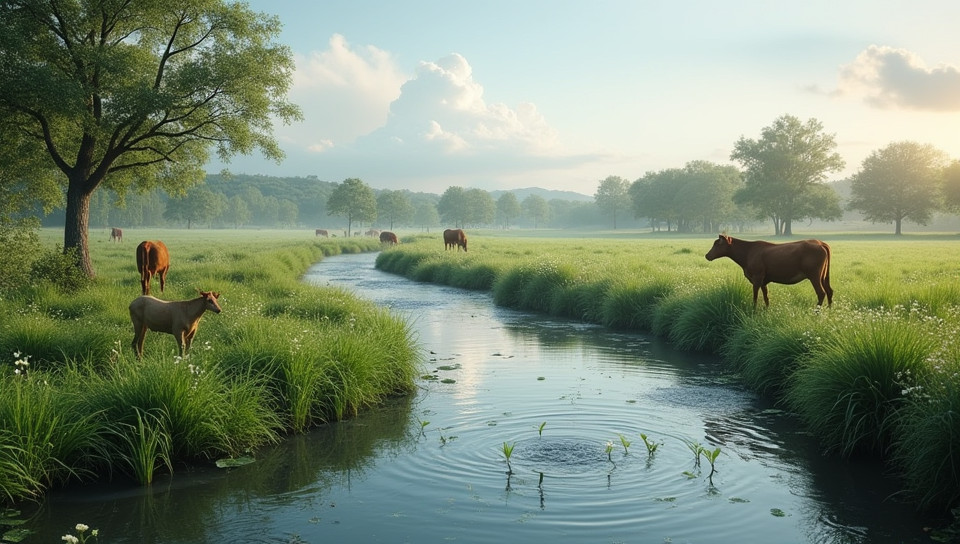Wastewater from farms contaminates nearby water sources often 80%

The Hidden Dangers Lurking in Our Waterways: Farm Wastewater Pollution
The pristine waters of our lakes, rivers, and streams are often touted as natural wonders, but the truth is far more complex. Behind the idyllic scenes of rural landscapes and lush agricultural fields lies a hidden threat to our water sources: farm wastewater pollution. The agricultural industry, which feeds our growing global population, has an unintended consequence that can have devastating effects on the environment.
The Problem with Farm Wastewater
Agricultural runoff from farms is one of the leading causes of water pollution in the United States and around the world. This issue is often overlooked, but it's essential to understand its far-reaching consequences. When fertilizers, pesticides, and manure from farms enter nearby water sources, they can cause significant harm.
The Sources of Pollution
- Fertilizer runoff: Excess fertilizer use on crops leads to excess nutrients in soil, which then seep into waterways, causing algae blooms.
- Pesticide contamination: Many pesticides used in agriculture are toxic and can persist in the environment for years, affecting aquatic life.
- Manure from livestock: Concentrated animal feeding operations (CAFOs) generate massive amounts of manure that often enter nearby water sources.
The Impact on Water Sources
Farm wastewater pollution has far-reaching consequences for our ecosystem. It can: - Harm aquatic life: Pollutants in farm runoff can contaminate fish, shellfish, and other aquatic species. - Affect human health: Consuming contaminated seafood or drinking water with pollutants can lead to serious health problems. - Impact local economies: Water pollution can damage tourism and recreation industries that rely on clean water sources.
The Solution Starts with Education
Addressing farm wastewater pollution requires a collaborative effort from farmers, policymakers, and consumers. Here are some steps we can take:
- Implement more efficient fertilizer management practices
- Promote sustainable agriculture methods
- Increase public awareness of the issue
- Develop regulations to limit pollutants in waterways
Conclusion
Farm wastewater pollution is a pressing environmental concern that demands attention from all stakeholders. By understanding the causes and effects of this issue, we can work towards creating a more sustainable agricultural industry that protects our precious water sources for future generations. It's time to take action and ensure clean, safe water for everyone.
- Created by: Arjun Singh
- Created at: Aug. 19, 2024, 9:55 p.m.
- ID: 7753






